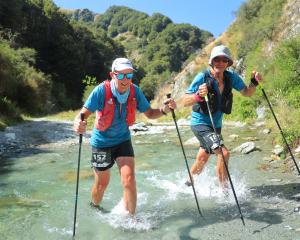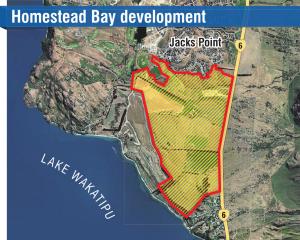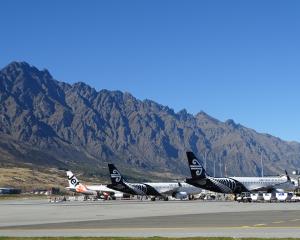In April 2008 Miss Jordan (21) was swamped and pinned to a rock near the Roaring Meg on the Kawarau River after becoming separated from her group, including her boyfriend Jonathan Armour, who watched her wave from beneath the water as she drowned.
On Tuesday, UK time, coroner Robin Balmain delivered a verdict of misadventure following a non-binding deliberation at Smethwick, near the Jordan family's West Midlands home.
After lobbying Prime Minister John Key, Chris Jordan helped spark a national review and overhaul of adventure tourism safety standards in the aftermath of his daughter's death.
Once generic guidelines are ironed out, tourism operators will be required to undergo compulsory registration and will face stricter supervision, but Mr Jordan said the changes were not happening quickly enough.
After the inquest concluded he told the Otago Daily Times that although the review was "positive" the introduction was too slow.
The review superceded a New Zealand coronial inquest, which Mr Jordan said should have been held regardless.
"I'm not anti-New Zealand ... this is about improving safety for young people who come to the country. They don't go there to risk their lives."
Mr Jordan said the two-day inquest had been "tough" and he did not want to be "portrayed as some lunatic father seeking revenge".
New river-boarding guidelines for life jacket buoyancy, released by Maritime New Zealand in April and due to be implemented by 2013-14, also did not go far enough, he said.
The inquest's nine-person jury found that "information and instruction were not given to clients in a way that clearly represented the true risks of danger.
"Secondly, the training received by the guides was inadequate for emergency rescue and entrapment and not specific to this particular activity of river boarding. It was not regulated by an external body.
"Thirdly, lack of essential lifesaving equipment to hand - such as a whistle, rope and knife - was a major factor in delaying the speed of rescue.
Also, the one-size-fits-all life jacket was clearly unsuitable for river-boarding in respect of buoyancy and there was a lack of safety features, such as crotch strap, D-ring and whistle attachment.
"Furthermore, a rescue craft was not available.
"We believe a combination of all these factors and events contributed to the death of Emily Jordan," the jury found.
In October, Mad Dog changed its name to the River Boarding Co, a move owner Brad McLeod said was planned before Miss Jordan's drowning.
The company does not operate during winter. Mr McLeod - who is in Wellington driving buses during the off-season - said yesterday the inquest had not unearthed anything that had not been "well and truly covered multiple times in New Zealand".
Mad Dog was fined $66,000 for fatal safety failures and ordered to pay $80,000 reparation to the Jordan family but Mr McLeod said he was never found guilty and had "accepted a plea bargain" in the hope that "all parties would move in a positive direction".
He hoped the UK verdict would allow that to happen.
- additional reporting Kidderminster Shuttle
New Guidelines
Maritime New Zealand safety guidelines for whitewater boarding operations, revised April 2011:
• Operators must review safety plans annually and after every accident, incident or mishap
• Safety plans must be audited every at least every two years and the initial audit will include inspection of all boards and safety gear
• Senior guides must undergo retraining at least every three years "to maintain currency in river-rescue skills"
• All guides on commercial trips must carry a knife, a whistle, a length of webbing, a rescue rope appropriate to the river, two carabiners and two prusik cords
• Commercial trips are forbidden on Grade 6 rapids, and at least two senior guides must accompany trips on grade 5 rapids
• Weather forecasts must be checked, considered and conditions appraised












